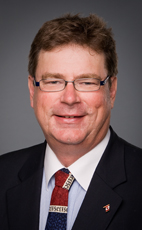Madam Speaker, I thank the member for his comments and referencing me in his comments.
I would like to point out to the hon. member that I am certainly not so delusional or naive that I think that our federal prisons are free of drugs. I understand that there are drug problems even inside the penitentiary system. I understand that.
However, I think that misses the point and I think that misses my comments as to why I am supporting Bill C-15. The real victims of this crime are, for example, the 14-year-old girl from Edmonton who a month and a half ago died from an overdose of ecstasy, a single dose. She purchased it at the West Edmonton Mall, went to a rave, ingested the ecstasy, was misled by the dealer as to its dosage, and she died. She is the real victim.
That is the individual that we are trying to protect by promoting minimum mandatory sentences in Bill C-15.
I listened to the member's comments very intently and he has, of course, been in the House a lot longer than I have. He talked about how during his tenure as a member of Parliament sentences for impaired driving had increased over the years and that there are in fact minimum mandatory sentences and they escalate on subsequent offences. He spoke in favour of that, if I heard him correctly.
Therefore, I want him to explain to me and explain to the House why he supports minimum mandatory sentences for impaired driving but not for trafficking in narcotics.

